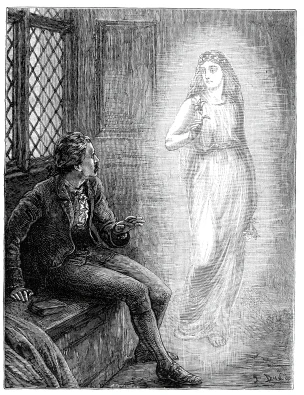I used to think a trope was a bad thing, assigning it the taint of a cliche. Well, a trope can become a cliche if overused and bludgeoned senseless, but I wasn't bothering to think beyond that.
Took me a while to realize...
Tropes Are Not Bad
The key for genre writers is to balance well-known tropes with innovation
I have a writer friend who says that one reason she started hitting the New York Times best seller lists was she began applying tropes in her stories. I'm reading one of her books now, and I see exactly what she's talking about. The story is based on a "rescue romance" trope where Person A rescues Person B, causing Person B to fall in love with Person A. Think the knight in shining armor who saves the damsel in distress who the knight later weds. Except this writer did a fun, entertaining twist on this trope -- it's the woman in short-shorts who saves the guy in distress, and readers couldn't buy this book fast enough.
Tropes are not only a good thing, some believe their outright omission can negatively affect readers. In the article "Genre Tropes and the Transmissibility of Story," the authors state "When familiar tropes are missing or unfamiliar tropes present, this can lead readers to reject a story outright."
The Power of Tropes
Here's a quote from TV Tropes on "Tropes as Tools":
Stories such as The Christmas Carol, where a human is visited by the past in the form of a ghost, use the happily ever before trope.
Tropes are just tools. Writers understand tropes and use them to control audience expectations either by using them straight or by subverting them, to convey things to the audience quickly without saying them.
Human beings are natural pattern seekers and story tellers. We use stories to convey truths, examine ideas, speculate on the future and discuss consequences. To do this, we must have a basis for our discussion, a new language to show us what we are looking at today. So our storytellers use tropes to let us know what things about reality we should put aside and what parts of fiction we should take up...it's impossible to write something completely and utterly without tropes, anyway, so strop trying.
When Good Tropes Go Bad
On the other hand, using tropes doesn't mean go nuts with them. A trope can help a story, but it shouldn't be the story. Like my writer friend, she didn't pluck a tried-and-true trope off the shelf and make it her story; no, she took a tried-and-true trope and gave it an entertaining spin.
Also, a trope isn't a "fix" for a story. If the writing's skillful, the characters complex and the plot is well-paced and interesting, a story can be thin on the trope side. Conversely, if a story is in bad shape, imposing a trope on it doesn't magically heal the story and make it better.
Time for me to get back to writing my new book proposal. In it, I've started with the popular trope opposite attract, which is basically a story where two very different people learn about the world through each others' eyes. This trope has worked for many stories, from Neil Simon's The Odd Couple to just about every buddy-cop story around.
Tropes. Don't leave a story without 'em.

